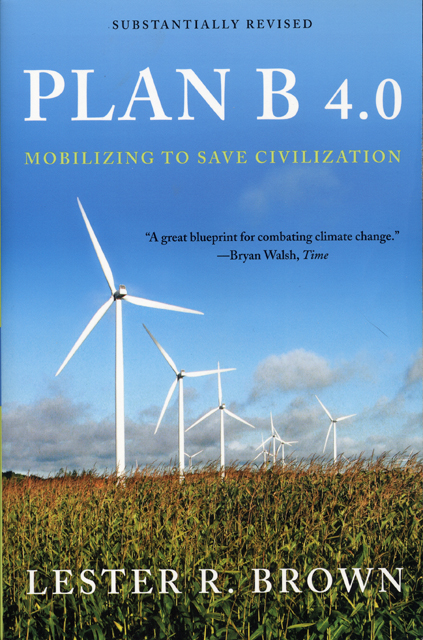 |
| www.earth-policy.org |
One issue in particular was rather unfamiliar to us before reading the material and watching the presentation - the acquisition of foreign land for food and water supplies. Major nations such as Saudi Arabia, China, India, South Korea, Egypt, Libya, Jordan, U.A.E., and Qatar, to name a few, are countries who are scrambling for foreign land acquisitions in an effort to support their populations. Unfortunately the areas sought after for raising crops are often heavily if not entirely reliant on the World Food Programme (WFP) for their food supply. Investors organize private contracts with the people at power of the nation they seek to exploit, usually to the detriment of the host countries general population. This fuels much debate and contempt with locals towards both their leaders and those who invest in the area, sometimes igniting a physical resistance.
These host countries
 typically do not receive any benefits from the investments, even when forced to relocate their own homes and farms. Many investors even ship in their own pre-fab housing, labor materials, work force, and even security forces. This is just a snippet of the barrage of conflicts taking place globally due to food and water demands, and has lead to an effort by major organizations such as The World Bank, the U.N. Food and Agriculture Organization, the IFPRI and the African Union to draft investment codes of conduct that would govern land acquisition agreements, respecting the rights of those living in the countries of land acquisition as well as the rights of investors. Frighteningly, many of these host countries are on the Foreign Policy's annual list of failing states, so we can only speculate what would happen should a host country collapse while harboring an investing countries supply of grain/food.
typically do not receive any benefits from the investments, even when forced to relocate their own homes and farms. Many investors even ship in their own pre-fab housing, labor materials, work force, and even security forces. This is just a snippet of the barrage of conflicts taking place globally due to food and water demands, and has lead to an effort by major organizations such as The World Bank, the U.N. Food and Agriculture Organization, the IFPRI and the African Union to draft investment codes of conduct that would govern land acquisition agreements, respecting the rights of those living in the countries of land acquisition as well as the rights of investors. Frighteningly, many of these host countries are on the Foreign Policy's annual list of failing states, so we can only speculate what would happen should a host country collapse while harboring an investing countries supply of grain/food. Now what about our food? In America and a handful of other nations worriment of a food supply is not so commonplace. We can buy meals from the abundance of fast food chains, corporate restaurants, private restaurants, supermarkets, local markets, convenience stores, etc. Many people fail to realize, however, the source of that hamburger or chicken sandwich, although our class became strikingly aware after Wednesdays viewing of Food Inc. Food Inc. is an American documentary directed by Emmy award-winning filmmaker Robert Kenner which examines three major controversies - the industrial production of meat (beef, pork and chicken), the industrial production of grains (corn and soy), and the economic and legal power of the major food companies. We learned about feed farms where cattle is forced into excrement laden pens where they
"fatten up" for a month using hormones, grain diets, and antibiotics. We saw thousands of chicks cooped up in windowless metal structures, fighting and sometimes killing each other out of desperation for survival and a little room to move. Farmers complained to the point of tears about the pressure they now receive from leading food companies such as Tyson, Purdue, and Monsanto about their constant debt for contract required equipment upgrades and the potential of patented bio-engineered seeds cross breeding with a neighboring farm, causing lawsuits and copyright infringement. We heard the story of Barbara Kowalcyk who told the story of her 2 year old son who died from E.coli poisoning after eating a hamburger.The Centers for Disease Control and Prevention estimates that 76 million Americans are sickened, 325,000 are hospitalized and 5,000 die each year from food-borne illnesses, contracted from mass produced food with poor quality control. Eventually we went on to learn about the private industry leaders who went on to head the work for the government and it's affiliates such as the FDA and the Department of Agriculture, directly influencing and/or controlling the standards to which the food industry is to be held.
While pages of information can be written, the incredibly dense issue is best understood perhaps by watching the film yourself or visiting the website and exploring it's material and links to other great resources. I challenge you to not consider the implications next time you find yourself in a drive through or wandering through your local supermarket. Just because it's convenient and abundant, doesn't mean it's safe. Don't you want to change that?
Interesting blog, enjoyed reading. Please post by noon on Mondays.
ReplyDelete